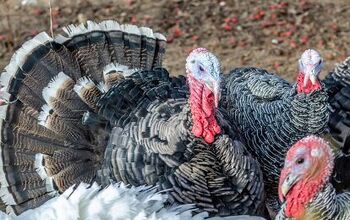What Is Traditional Chinese Veterinary Medicine?

Traditional Chinese Medicine (TCM) dates back thousands of years, and both humans and animals can benefit from it. When applied to pets, it’s referred to as Traditional Chinese Veterinary Medicine (TCVM).
Veterinarians trained in TCM are able to go beyond the use of pharmaceuticals to also incorporate natural remedies like herbs and acupuncture. If you’re interested in learning more about what TCM is and how it can benefit pets, continue reading.
Traditional Chinese Medicine for Pets
Based on Daoist philosophy, Chinese Medicine takes a holistic approach and views an animal’s body as a part of the universe. Energy, referred to as Qi, flows through individuals and through the universe, so TCM practitioners look at more than just physical symptoms. They will consider what imbalances are occurring in the body, and how those imbalances can be fixed to restore the body to a state of harmony.
Each pet is viewed as a unique individual who can be affected by various factors beyond the physical body. A veterinarian will ask about their daily life and their home environment. They’ll also consider the pet’s personality and behavior, including the things they enjoy, to figure out what may be causing their ailment and choose the right remedy.
In addition, this healing system focuses on five elements of earth, water, fire, wood, and metal, as well as five seasons of autumn, winter, spring, summer, and late summer, to diagnose and treat patients. Each season is linked to an element, and an animal moves through the seasons throughout their life (e.g., spring phase when they’re young and winter phase when they’re old). Also, the organs throughout the body are associated with these seasons and elements, and they affect each other, so all of this is taken into consideration when diagnosing and treating patients.
For someone just learning about TCM, it can all be quite complicated. But a practitioner with a lot of knowledge and experience in this area will be able to understand how the body works as a whole and how it is influenced by the external world as well.
What Types of Treatments Are Included in TCM?
Veterinarians who practice TCM use several types of treatments to address a variety of pet health concerns. Those include:
Herbs: A variety of herbs are used in TCVM, and your veterinarian will determine which ones are best for your pet. Your furry friend might need a single herb or a combination of herbs to feel better. Herbs can be potent, and it’s wise to discuss potential side effects with your vet. Also, if your pet is taking other supplements or medications, your vet will determine if adding certain herbs to the mix is safe.
Food Therapy: Providing your pet with the right nutrition can be helpful in maintaining and improving their health, and you can receive personalized guidance in this area from a vet who practices TCVM. Certain ingredients, diets, and/or supplements might be recommended based on your companion’s specific needs. Options like Herbsmith Smiling Dog Treats and Herbsmith Sassy Cat Treats can be used to provide warming, cooling, or neutral foods to rebalance your pet’s constitution.
Acupuncture: Acupuncture can be used to address a range of conditions, from arthritis to digestive ailments and neurological problems. Tiny needles are inserted into the skin at specific points on the body in order to improve the flow of energy, boost circulation, and reduce inflammation and pain. Laser acupuncture, electroacupuncture, and acupressure are also used to help pets.
The Benefits of TCM for Pets
Veterinarians can use TCM to treat a wide range of health concerns in pets. Examples include allergies, inflammatory bowel disease, lameness, hormonal problems, and conditions affecting the organs. Even behavioral issues can be addressed with the help of TCVM.
Instead of solely working on getting rid of symptoms, this method works on correcting the reason behind an ailment or imbalance. Using the appropriate TCM remedies, which are chosen after evaluating myriad factors, can bring the body back into a state of wellness.
Work with a Qualified TCVM Expert
If you’re thinking about using TCM, consult only with a licensed veterinarian who has been properly trained in Traditional Chinese Veterinary Medicine. They will be able to tell you if your pet would benefit from it, and will be able to ensure adverse effects won’t occur.
The right TCM expert will know which treatments can be combined and which ones shouldn’t be used together, whether you’re only using TCM or you want to utilize both veterinary TCM and conventional/Western veterinary medicine to help your pet. Plus, they’ll know when it’s best to use conventional medicine instead of TCM to address an issue, as each system has pros and cons.
The bottom line is this: choose your TCM practitioner carefully, making sure they’re qualified. It’s important to find a veterinarian who has also become certified in TCVM and offers it at their practice.
Consider Traditional Chinese Veterinary Medicine for Your Pet
There are several ways you can go about taking a more holistic approach to your pet’s care, and TCVM is one of them. It can serve as a great complement to conventional veterinary care, so it’s worth considering whether it could be useful in supporting your companion’s overall health.
Join the PetGuide community. Get the latest pet news and product recommendations by subscribing to our newsletter here.

Lisa Selvaggio is a freelance writer and editor, and our resident cats-pert, with certifications in pet nutrition and pet first aid. She enjoys producing content that helps people understand animals better so they can give their pets a safe and happy home.
More by Lisa Selvaggio
























